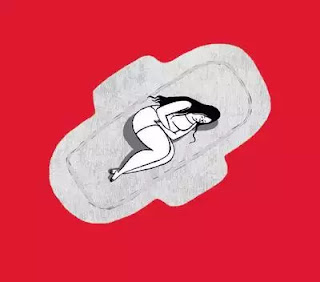While the world is consumerising on sustainable biodegradable or more natural ways of sanitary pad waste management or engaging in discussion as to whether sanitary pads should be taxed or not, women in many thousand villages of Modern India don’t know what periods are? Of course they go through the periods every month; but they haven’t heard of this word let alone know what periods are.
Just a day before the implementation of our first session on ‘periods and hygiene’ with the rural women as part of our gender, sexuality and reproductive health program, I found myself in a discussion around periods; my friends from other country were sharing how this was taboo long back to say that I am on periods now they can say it and there are period leaves or how someone’s husband bought tampons for her! And I was wondering how long will it take for women in our country to even say this? Obviously people would counter this by saying that no things have changed, young girls and women are taking charge of their lives and feel no shame in talking about periods. My question would be what percentage because with my work on reproductive health of 6 years, leaving few of the people I know from social sector, I have never come across girls/women who would talk about periods or even say Periods out loud without feeling ashamed or conscious of their surroundings
We
began our second intervention with ‘menstruation and hygiene’ session as part
of our reproductive health program for rural women. The workshop began with brief introduction of
facilitators, our work and intention behind this intervention. We changed the
discourse of our interaction by inviting the participants to say their name
aloud. Women in our country struggle with their identity because they are
defined by their relationships – they are someone’s daughter, sister, mother,
wife or daughter in law; in course of all this how many times they are
addressed by who they are or by their own name. This reminds me of a story ‘The
woman who forgot her name’ from the book Roar written by Cecelia Ahern. It’s an
interesting narrative of a woman who handled all her responsibilities very well
and kept everyone happy around her and in doing so she forgot her name. Saying
your own name loud and clear is the initial step towards the journey of finding
your place, identity, learning new things and discovering your voice.
While
we were engaging on what comes to their mind on hearing periods, date, mahina
and related words for menstruation, only one of the participants responded. On
probing a little more, one of them timidly voiced “When I don’t know, then what
I would answer?”
I
believe this was the moment our entire course of the discussion took a very
different turns. All of these women are married with one or two children and
they have never heard the word! This must come as surprise but unfortunately it
didn’t.
From
this response, we began explaining what are periods, what are the common
terminology that are used? Why girls have periods? What is the reason behind
girls having periods? All this step by step so that they know what is happening
in their body and why it is important to know about it and how can this
information be helpful in their lives. This was followed by the discussion on
taboos and things that are told to women do or not do while they have periods. Since
they never knew what periods are, they just followed all these instructions
blindly, now they would be aware as to why they are being told and they can
challenge the things they deem not favorable to their liking.
One
of the things that are immensely popular in villages in Uttar Pradesh is
linking periods with girls getting mature or ready for marriage ( Ladhki
sayani ho gayi hai iska byya karwa do) This very sentence is rooted deep in
patriarchal system which not only takes away the innocence and choice from the
girl but is very detrimental to their physical and reproductive health.
The
session ended with providing space for the participants to share their thoughts
and ask questions!
“This is such an important information but no one ever talked about it to us”

No comments:
Post a Comment